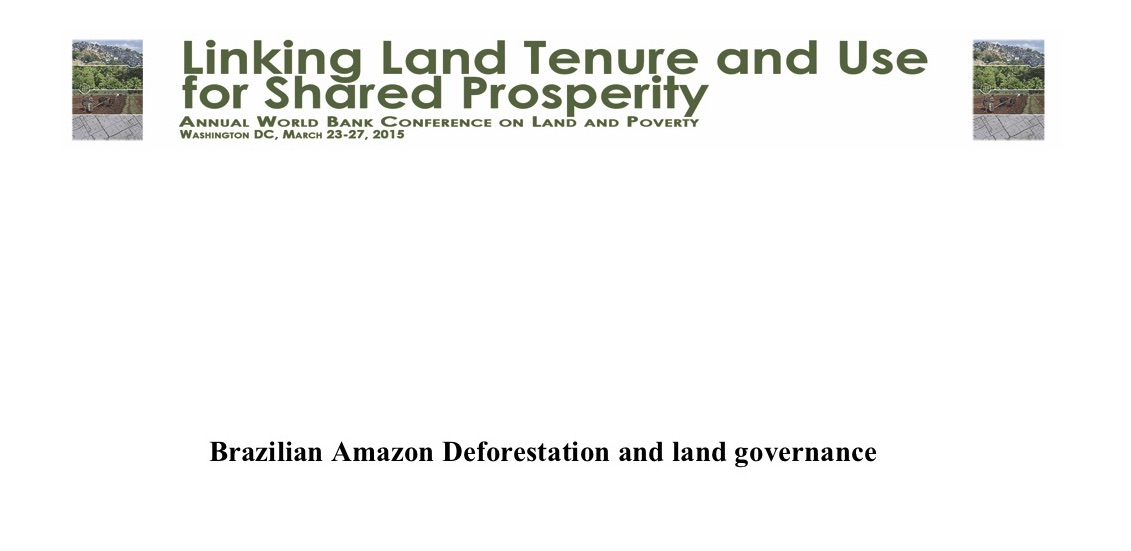Environmental reserve quotas in Brazil's new forest legislation: An ex ante appraisal
Cotas de reserva ambiental no novo código florestal Brasileiro: Uma avaliação ex-ante
How Do Differences in Land Ownership Types in China Affect Land Development? A Case from Beijing
China has a unique land use system in which there are two types of land ownership, namely, state-owned urban land and farmer collective-owned rural land. Despite strict restrictions on the use rights of farmer collective-owned land, rural land is, in fact, developed along two pathways: it is formally acquired by the state and transferred into state ownership, or it is informally developed while remaining in collective ownership.
Compulsory Acquisition of Land in Singapore
This article outlines the legislative history of the Land Acquisition Act (Cap 152, 1985 Rev Ed) and the philosophy behind the legislation. The main thrust of the article is its analysis of the circumstances leading to the amendments to the Land Acquisition Act. In so doing, it also examines the development of the compensation framework and its implications for landowners. A number of landmark cases on interesting issues have also been referred to and these serve to illustrate the changing paradigms of the State and the landowners with the passage of the laws on compulsory acquisition.
Theoretical aspects regarding the „person” in land law legal relations
In land law, legal norms are regulating land legal relations, which represent a complex of relations that appear between the landowners in the process of land use. Those who are under the legal norm find in its content the „model” of behaviour they must have, whether a certain action or abstention is required from them or if they are allowed to do or not to do something. Land legislation determines a particular notion regarding the subjects participating in land relations.
Brazilian Amazon Deforestation and land governance
Brazilian public land destination: a case study of the Terra Legal federal initiative and the province of Mato Grosso’s Land Institute.
Women and land : securing rights for better lives
The core of this book focuses on recent findings from sub-Saharan Africa, where researchers in 14 countries have explored the topic from many angles: legal, customary, political, and economic. Researchers from non-governmental organizations (NGOs), academics, and grassroots activists worked together with communities, exploring the experiences of women in specific contexts.
Landlords are taking back the land: the agrarian transition in Vietnam
What Drives Landowners to Resist Selling Their Land? Insights from Ethical Capitalism and Landowners’ Perceptions
Foreign land grabbing is acknowledged as a phenomenon that generates disempowerment and dispossession of local farmers, human rights violations. Previous studies have revealed the lack of ethical benchmarks in foreign large-scale land transactions that raise moral concerns. It is evident that when resources are scarce and people depend on them, the balance between values and interests transforms itself into a dilemma.
Land conflict resolution: case studies in the Philippines
This article summarizes the nature of land-related conflicts in the Philippines within the context of the prevailing agrarian situation throughout the country. An analysis of the agrarian institutions and different types of development that have occurred in a number of regions provide a broad representation of the current situation.









